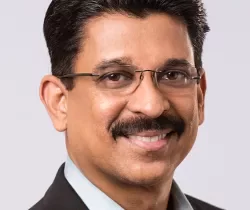It’s Q4 2020, and B2B managers of events, demand generation and field-marketing activities are planning next year’s campaigns and customer-engagement activities. The question on their minds: when will events be back to “normal?”
I think it’s safe to say that large gatherings of people involving flights and hotels will not be happening anytime soon. However, 2021 events and customer meetings, virtual or otherwise, must be planned and budgeted. What should you do?
While B2B marketers depend heavily on event marketing, most B2B enterprises have turned from in-person to virtual events. Initially, event organizers were pleased to see 2-5 times the number of attendees compared to in-person user conferences. Apple, Cisco, Google and VMware all staged impressive virtual user conferences and are planning more for the foreseeable future.
However, the switch to virtual has brought new challenges. Attendee engagement is by far the most important key performance indicator, yet event marketers agree that this is also one of the most challenging aspects of the medium. Audience fatigue is another issue. Most event organizers have limited or no experience in managing virtual events, or with the technologies needed to run them.
But I think there’s another reason. While skills and tools can be quickly assimilated, there’s a lack of enthusiasm about virtual events. Many marketing organizations viewed virtual events as a temporary solution and failed to ensure effective collaboration between the events and digital marketing teams. This limited the ways in which they could engage more with exhibitors, session speakers and attendees. To maximize the ROI from virtual events, marketers must commit to making them work and change how they tackle them.
How to improve your virtual events in 2021
It seems likely that the pandemic will gradually fade in 2021, therefore we need a graduated response to event plans. The large trade shows we knew will be a combination of virtual and in-person. The good news is that these hybrid events will reach larger audiences than ever before. Attendees, corporate sponsors, event organizers and technology companies are beginning to warm up to some of the unexpected benefits of virtual and will integrate it for increased participation.
What I expect as the new normal is that event marketing teams will gradually switch from exclusively virtual to hybrid events for the next 12-15 months. In the meantime, we need to get better at virtual events. Here’s how:
- Maximize flexibility. With in-person events, dates, venues, attendees and sessions are well-defined. Virtual events are far more flexible: live, recorded or semi-recorded; extended dates for follow-up engagements; live-stream or interactive sessions can be used; follow-on customer or partner meetings can be set over weeks or months; attendees and staff from multiple time zones can attend.
- Think “Hub and Spoke.” Plan every large virtual conference as the hub for major corporate keynotes and sessions but extend it to multiple smaller events in local regions or by business units. Regional teams can cater to the needs of the local audience and tailor the messages and products or services to them.
- Collaborate better. Get your digital marketing teams, event experts and field marketing teams around the virtual table. Digital marketers can offer expertise in automation, while events and field marketers know how to deliver a satisfying attendee experience. The combined power of these teams will deliver the best of both worlds—and drive consistency on tools and alignment of messages.
- Be creative. To reduce attendee fatigue, mix it up with entertainment, fun activities and offer ways for attendees to engage more with experts and schedule demos. For example, include a 30-minute break with live music or a DJ.
- Focus on ROI. Find ways to leverage technologies that provide an engaging experience and use automation to enable follow-up with meetings with qualified attendees. Attendees want more than keynotes and sessions; they need to meet with experts to learn more about what’s on offer and make decisions to achieve their objectives.
- Extend your goals from MQLs to MQMs. Gathering leads by registering attendees or offering content for filling out contact information is a good start — these are marketing-qualified leads. But you need to go further and think how you can drive marketing-qualified meetings. A meeting automation platform lets attendees request a wide array of follow-on meetings with executives or subject-matter experts that can be either automatically scheduled or processed through an approval process.
Ninety-five percent of companies are planning virtual events through early next year. Let’s embrace the “new event normal” and rewire our processes to maximize attendee engagement and drive value for organizers and attendees alike.
Don’t miss any event-related news: Sign up for our weekly e-newsletter HERE and engage with us on Twitter,Facebook, LinkedIn and Instagram!



Add new comment